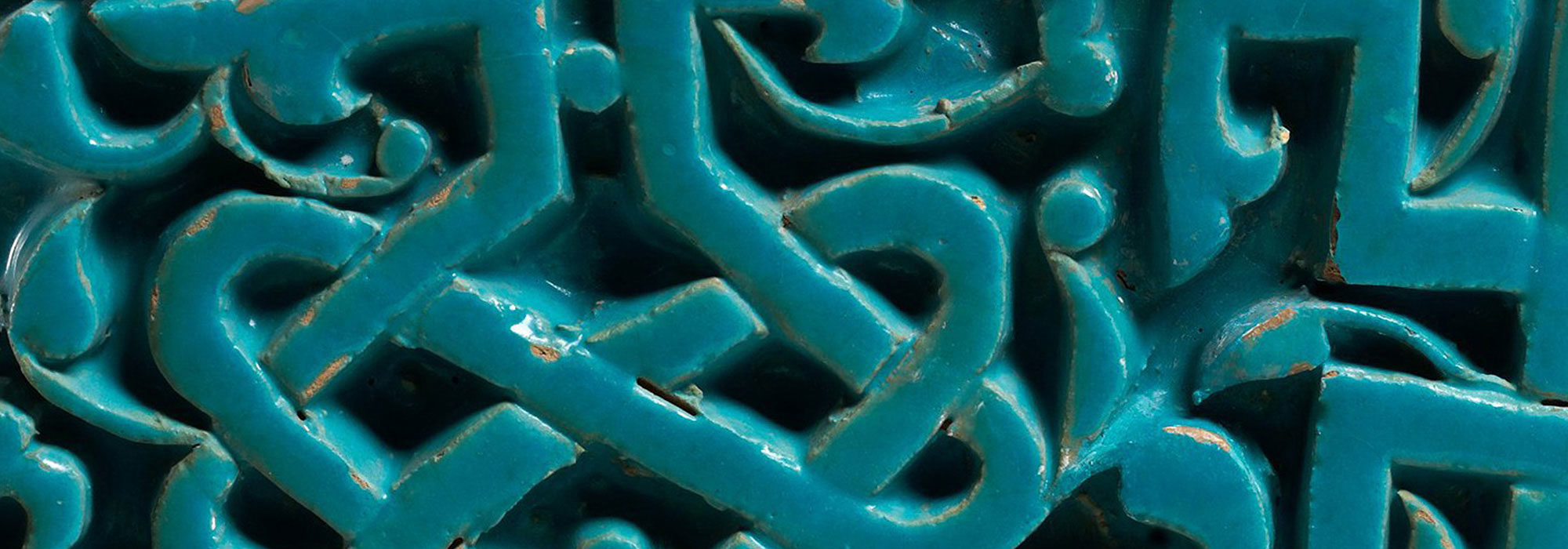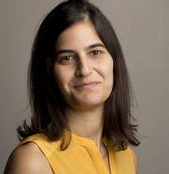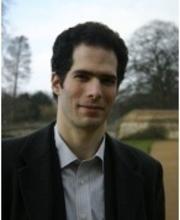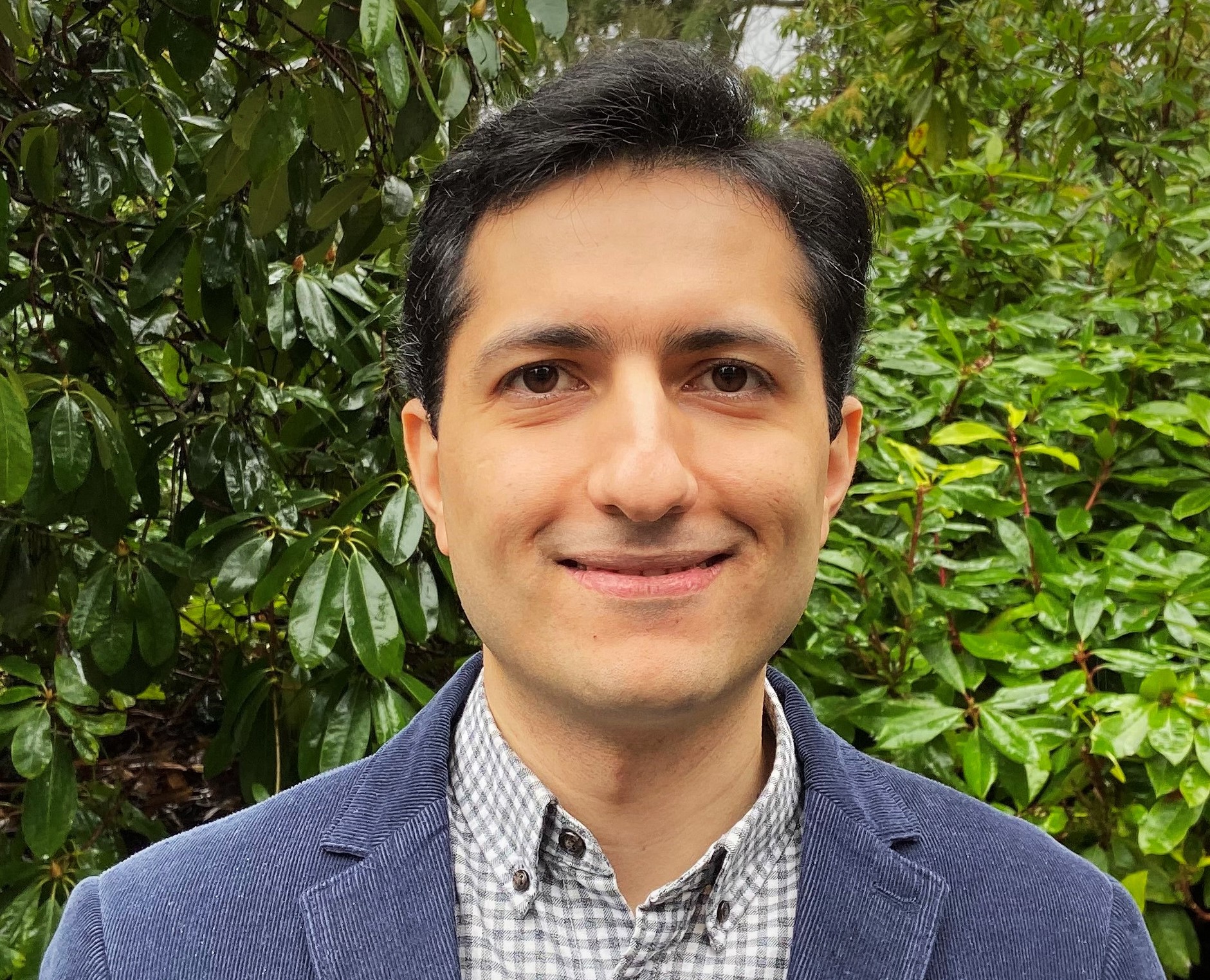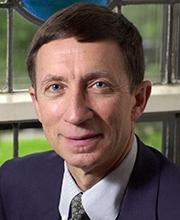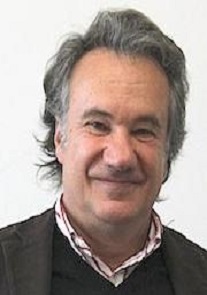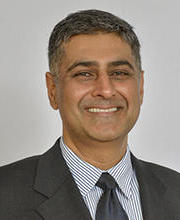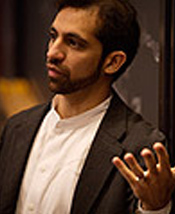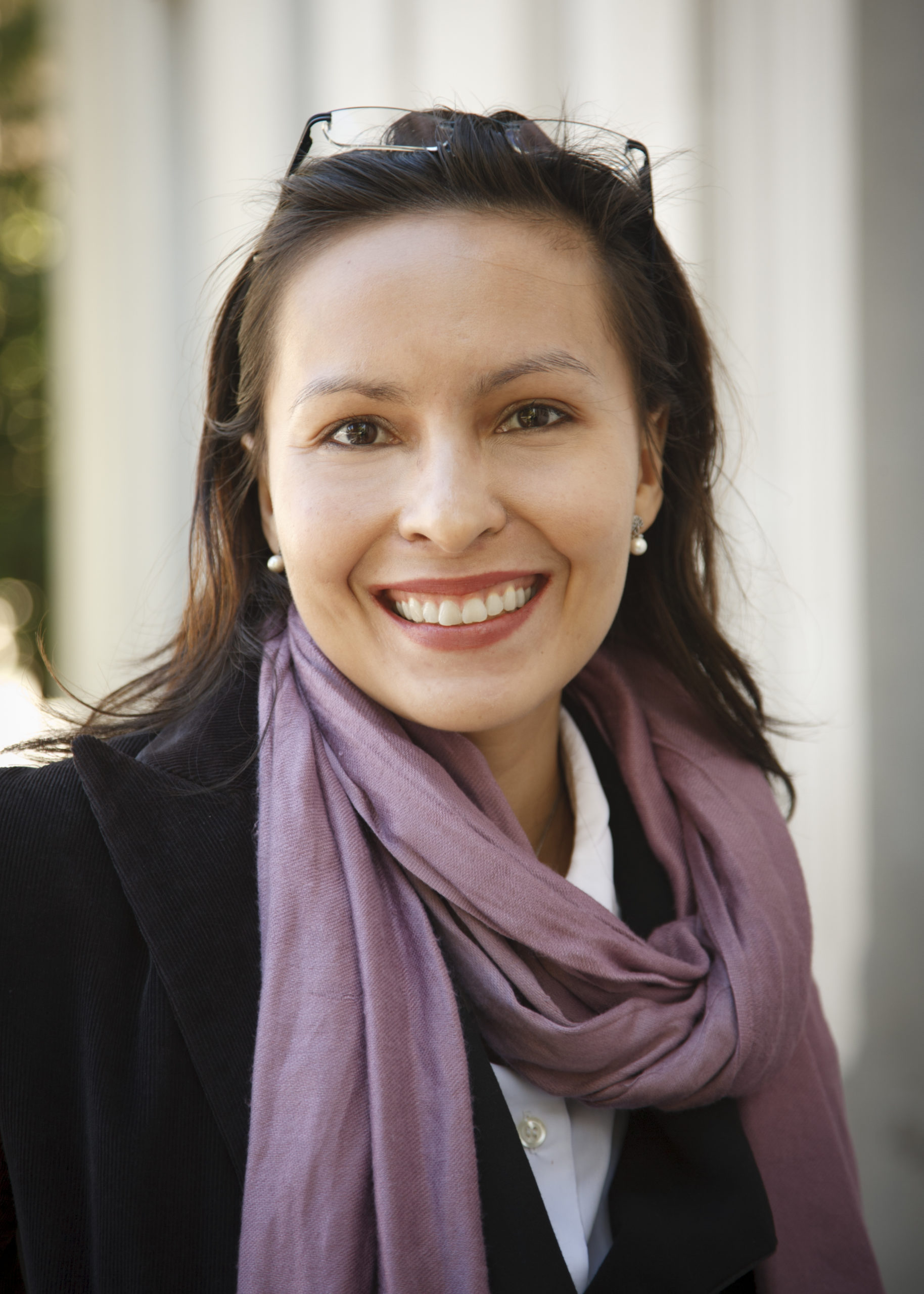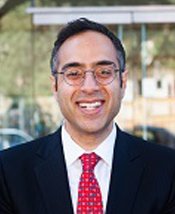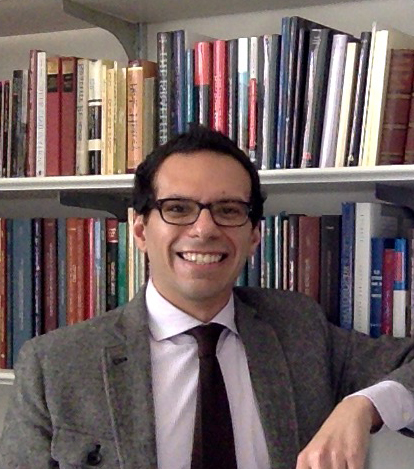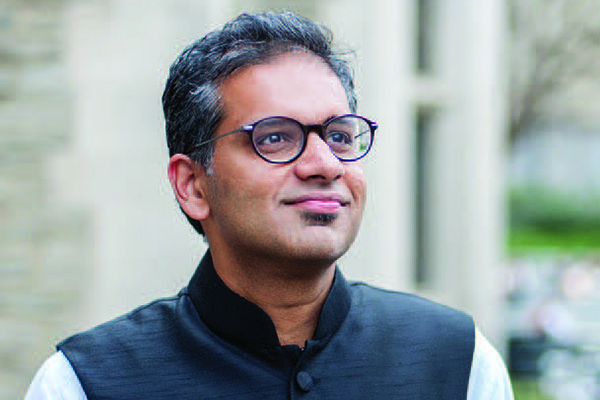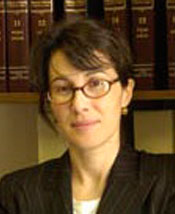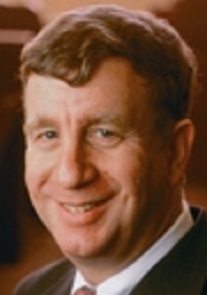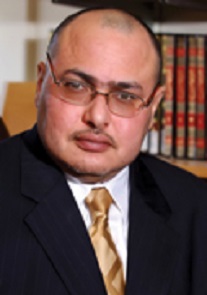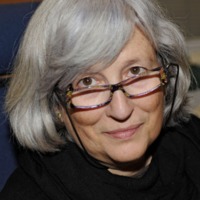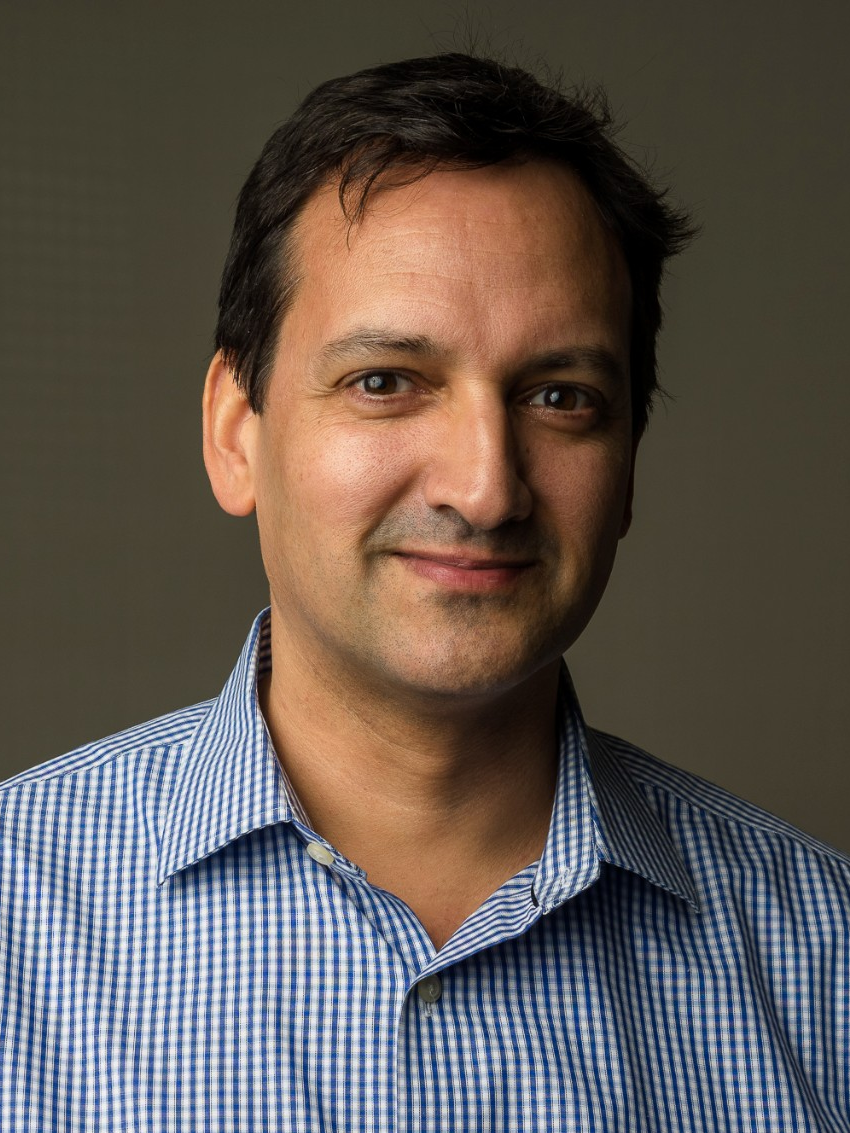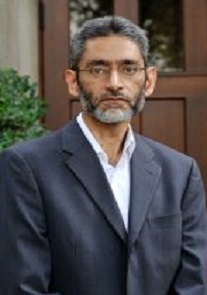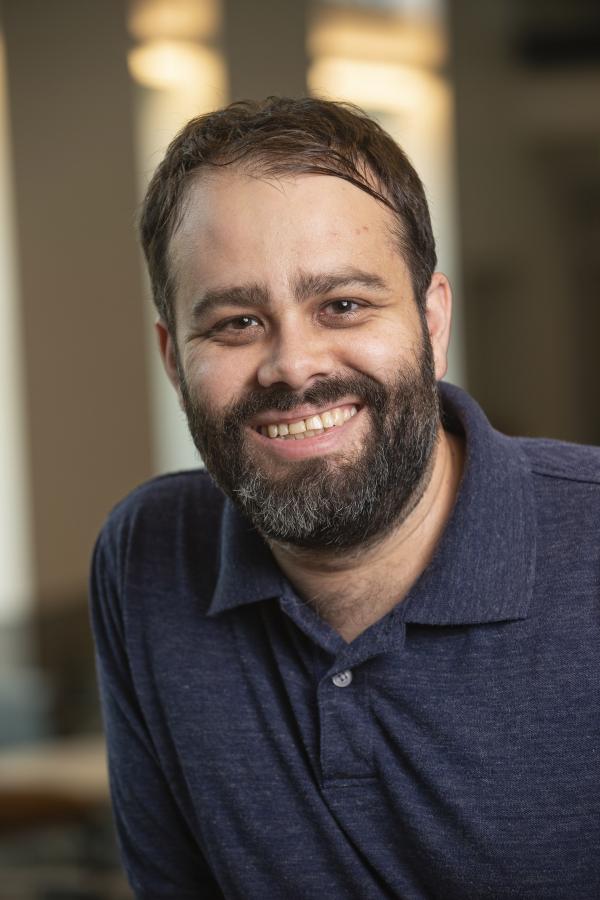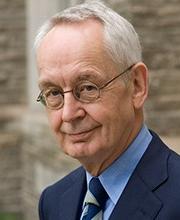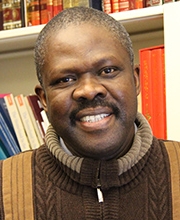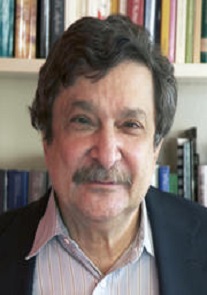Harvard Faculty Affiliates

Rosie Bsheer is an historian of the modern Middle East and Assistant Professor of History at Harvard University. She comes to Harvard University from Yale University, where she was Assistant Professor of History (2014–2018). She is the recipient of the Poorvu Family Award for Interdisciplinary Teaching at Yale University (2017) and Yale College’s Sarai Ribicoff ‘75 Award for the Encouragement of Teaching (2018).
Bsheer’s work has been supported by the Mellon Foundation, the American Council of Learned Societies (ACLS), the Social Science Research Council (SSRC), the Whiting Foundation, and the Institute for Religion, Culture, and Public Life. Her teaching and research interests center on Arab intellectual and social movements, petro-capitalism and state formation, and the production of historical knowledge and commemorative spaces.
She is the author of Archive Wars: The Politics of History in Saudi Arabia (Stanford University Press, October 2020). he is Associate Producer of the 2007 Oscar-nominated film& My Country, My Country, Co-Editor of Jadaliyya E-zine, and Associate Editor of Tadween Publishing.
She received her Ph.D. in History from Columbia University (2014).

Khaled El-Rouayheb is the James Richard Jewett Professor of Islamic Intellectual History and chair of the Near Eastern Languages & Civilizations department. His research interests include: the intellectual and cultural history of the Arabic-Islamic world in the Mamluk and early-Ottoman periods (1200-1800); the history of Arabic logic; Islamic theology and philosophy.
His publications include three monographs: Before Homosexuality in the Arabic-Islamic World, 1500-1800 (University of Chicago Press, 2005), Relational Syllogisms & the History of Arabic Logic, 900-1900 (Brill, 2010), and Islamic Intellectual History in the Seventeenth Century (Cambridge University Press, 2015). He has also prepared an edition of Kashf al-asrar ‘an ghawamid al-afkar, a summa of logic by Afdal al-Din al-Khunaji (d.1248) (Iranian Institute for Philosophy, 2010). He is the co-editor (along with Sabine Schmidtke of the Institute of Advanced Studies, Princeton) of The Oxford Handbook of Islamic Philosophy (2016).
He holds a BA in Philosophy from the University of Copenhagen (Denmark), a MA in Middle Eastern History from the American University of Beirut (Lebanon), and a PhD (2003) from the Faculty of Oriental Studies, University of Cambridge (United Kingdom).

Mohsen Goudarzi is Assistant Professor of Islamic Studies at the Harvard Divinity School. A scholar of the Qur'an and early Islamic history, he has published on the Qur'an's theological and legal dimensions, its relationship to the Bible and post-biblical literature, its reception in Muslim exegesis, and its textual genesis. His current projects include an article that rethinks the Qur’an’s legal philosophy and a monograph that explores the Islamic scripture’s historical vision.
Goudarzi obtained his PhD from Harvard's Committee on the Study of Religion in 2018, after which he taught as Assistant Professor at the University of Minnesota (Twin Cities) for three years, before joining the Harvard Divinity School in July 2021.

William A. Graham is Harvard University Distinguished Service Professor, and Murray A. Albertson Professor of Middle Eastern Studies (Faculty of Arts and Sciences). Graham served as Dean of Harvard Divinity School from 2002 to 2012, when he stepped down to return to research and teaching. His scholarly work has focused on early Islamic religious history and textual traditions (Qur’an and Hadith), and on topics in the global history of religion.
His book Divine Word and Prophetic Word in Early Islam was awarded the American Council of Learned Societies History of Religions Prize in 1978. He is the author of Beyond the Written Word: Oral Aspects of Scripture in the History of Religion (1987) and Islamic and Comparative Religious Studies(2010). He has co-authored three books and is also the author of numerous articles and reviews.
He is a summa graduate of the University of North Carolina at Chapel Hill and holds honorary doctorates from UNC and Lehigh University.

Cemal Kafadar is the Vehbi Koç Professor of Turkish Studies at Harvard University. Prof. Kafadar is interested in the social and cultural history of the Middle East and southeastern Europe in the late medieval/early modern era. He teaches courses on Ottoman history, urban space, travel, popular culture, history and cinema.
His latest publications include “How Dark is the History of the Night, How Black the Story of Coffee, How Bitter the Tale of Love: the Changing Measure of Leisure and Pleasure in Early Modern Istanbul” and “Evliya Celebi in Dalmatia: an Ottoman Traveler’s Encounters with the Arts of the Franks.”
Kafadar graduated from Robert College, then Hamilton College, and received his PhD from the McGill University Institute of Islamic Studies in 1987.

Dr. Keshavjee is a professor in the Department of Global Health and Social Medicine and Department of Medicine at Harvard Medical School. He also serves as a physician in the Division of Global Health Equity at the Brigham and Women’s Hospital. He conducted doctoral research in medical anthropology at Harvard University on the health transition in post-Soviet Tajikistan. He has worked with the Division of Global Health Equity and Partners In Health on the implementation of a multidrug-resistant tuberculosis (MDR-TB) treatment program in Tomsk, Russia. Between 2000 and 2008, Dr. Keshavjee set up a program to treat patients co-infected with HIV and MDR-TB in Lesotho. Between 2007 and 2010, Dr. Keshavjee served as the chair of the Green Light Committee Initiative, a Stop TB Partnership/WHO initiative which helps countries gain access to high-quality second-line anti-TB drugs so they can provide treatment for people with MDR-TB in line with the WHO guidelines, the latest scientific evidence, and country experiences. He is currently a member of the Stop TB Partnership’s MDR-TB Working Group Core Group.
Dr. Keshavjee received his ScM from the Harvard School of Public Health in 1993, his PhD in Anthropology and Middle Eastern Studies from Harvard University in 1998, and his MD from Stanford University in 2001. He completed his clinician-scientist residency in Internal Medicine and a fellowship in Social Medicine at Brigham and Women’s Hospital in 2005. In addition to his appointment with the Department of Global Health and Social Medicine, Dr. Keshavjee serves on the faculty of the Division of Global Health Equity (DGHE) at Brigham and Women’s Hospital (BWH). He is also an attending physician in the Department of Medicine at BWH. He is an affiliate and Steering Committee member at the Harvard Center for Middle Eastern Studies.

Asim Ijaz Khwaja is the Sumitomo-Foundation for Advanced Studies on International Development Professor of International Finance and Development at the Harvard Kennedy School, and Co-Director of Evidence for Policy Design (EPoD). He was selected as a Carnegie Scholar in 2009 to pursue research on how religious institutions impact individual beliefs.
His areas of interest include economic development, finance, education, political economy, institutions, and contract theory/mechanism design. His research combines extensive fieldwork, rigorous empirical analysis, and microeconomic theory to answer questions that are motivated by and engage with policy. His recent work ranges from understanding market failures in emerging financial markets to examining the private education market in low-income countries.
Khwaja received BS degrees in economics and in mathematics with computer science from MIT and a PhD in economics from Harvard.

Annette Damayanti Lienau joined Harvard’s Department of Comparative Literature as an Assistant Professor in 2018. Her core research uses the legacy of the Arabic language as a lens for transregional studies of post-colonial writing, offering an alternative approach to the often binary (colonial/post-colonial) constructions used in more isolated studies of national literary histories.
Lienau’s first book, Sacred Language, Vernacular Difference: Global Arabic and Counter-Imperial Asian and African Literatures (under review with Princeton University Press) traces how Arabic—as an inter-ethnic language— evolved as a counter-imperial medium and symbol, and became intertwined with debates about cultural parity and racial equality in the nineteenth and twentieth centuries. The book moves historically from colonial documents to counter-imperial writing and has the distinction of working inter-imperially, encompassing original work on texts and languages from the former territories of French West Africa, Egypt under British occupation, and the Dutch East Indies.
Her book also considers the extent to which a common linguistic situation—the historical use of the Arabic script for vernacular languages and the preservation of Arabic as a religious medium among diverse communities—influenced the evolution of literary and textual standards in three national cases with distinct imperial legacies: Senegal, controlled by the French, Indonesia by the Dutch, and Egypt by the Ottoman Empire and subsequently by the British Empire. It thereby examines how Arabic impacted the formation of emerging national literatures in ways that contrast with vernacular European literatures evolving from a Latin ecumenical context. Her book equally traces how regions in West Africa and Southeast Asia, once culturally unified through the common use of the Arabic script, were later divided by the colonial introduction of European languages and romanized print.
For a subsequent project, Lienau will be exploring materials on the cultural memory and literary traces of mass uprisings in Indonesia (1998) and Egypt (2011), assessing and comparing these major historical transitions alongside their joint implications for post-colonial studies towards the turn of the twenty first century. She will also be working towards a longer-term project on counter-imperial writing and transregional histories of sabotage, provisionally entitled From Sabotage to (Counter)-Revolution: Thresholds of “Liberation” within the Global South.
Lienau completed her Ph.D. in Comparative Literature from Yale University (2011) and received a Certificate of Arabic Studies from the Center for Arabic Studies Abroad (American University in Cairo, 2006-2007). She also received an M.A. in French Studies from Middlebury College in Paris (2003), through which she enrolled at the Sorbonne Nouvelle (Université de Paris III). In addition to working in Arabic and French, Lienau is a heritage speaker of Indonesian. She has also pursued training in Wolof at the Centre de Linguistique Appliquée de Dakar (Université Cheikh Anta Diop).

Tarek Masoud is the Sultan of Oman Associate Professor of International Relations at Harvard University’s John F. Kennedy School of Government. He is a 2009 Carnegie Scholar, a term member of the Council on Foreign Relations, a member of the editorial board of the Journal of Democracy, and the recipient of grants from the National Science Foundation and the Paul and Daisy Soros foundation, among others. His research focuses on the role of religion in the Muslim world’s political development.
He is the author of Counting Islam: Religion, Class, and Elections in Egypt (Cambridge University Press, 2014), the co-author of The Arab Spring: Pathways of Repression and Reform (Oxford University Press, 2015), as well as of several articles and book chapters.
He holds an AB from Brown and a PhD from Yale, both in political science.

Professor Shady Nasser is a Program in Islamic Law Faculty Affiliate. He teaches Arabic literature and Islamic Civilizations courses. His previous posting was as a University Lecturer in Classical Arabic studies at the University of Cambridge (UK), in the Faculty of Asian and Middle Eastern Studies. From 2009-2012 he was a senior lector of Arabic and the coordinator of the Arabic language program at Yale University. In 2013, he was appointed University Lecturer in Classical Arabic studies at the University of Cambridge (UK).
Nasser's research interest is Qur’anic studies in general with particular focus on the history of the transmission of the text, its language, and its reception among the early Muslim community. Pre-Islamic and early Islamic poetry, Akhbār Literature, and Ḥadith transmission, are also among Nasser’s research interests. His publications include The Transmission of the Variant Readings of the Qur’ān: The problem of tawātur and the emergence of shawādhdh (Leiden: Brill, 2012).
Shady started his PhD at Harvard University in Arabic and Islamic studies under the supervision of Wolfhart Heinrichs. He completed his PhD in 2011.

Gabriel Pizzorno is a lecturer in the Department of History at Harvard University and the faculty chair of Harvard’s Digital Scholarship Support Group. His research spans a broad range of subjects, from imperialism and power centralization in the ancient Near East to aspects of personhood and dehumanization in concentration camps during the Holocaust. These diverse research interests are joined by two common threads: a focus on material culture as historical source, and the use of advanced digital tools to enable the exploration and interrogation of large and complex datasets. Pizzorno’s work attempts to bridge the gap between the detailed enquiry necessary to comprehend small-scale phenomena and the overarching syntheses required to place them in their proper historical context.
Before joining the History Department at Harvard in 2014, Pizzorno received a PhD in Art and Archaeology of the Mediterranean World from the University of Pennsylvania.


Malika Zeghal is the Prince Alwaleed Bin Talal Professor in contemporary Islamic thought and life at Harvard and studies religion through the lens of Islam and power. She is particularly interested in Islamist movements and in the institutionalization of Islam in the Muslim world, with special focus on the Middle East and North Africa in the postcolonial period and on Muslim diasporas in North America and Western Europe. She has more general interests in the circulation and role of religious ideologies in situations of conflict and/or dialogue.
She has published a study of central religious institutions in Egypt, Gardiens de l’Islam, (1996), and a volume on Islam and politics in Morocco, Islamism in Morocco: Religion, Authoritarianism, and Electoral Politics (2008), which has won the French Voices-Pen American Center Award. She is currently working on a book on states, secularity, and Islam in the contemporary Arab world. An alumna of the Ecole Normale Supérieure de la Rue d'Ulm (Paris, France),
Malika Zeghal holds a PhD in Political Science from the Institut d'Etudes Politiques de Paris (1994).
Editorial Board & Advisors

William P. Alford is the Vice Dean for the Graduate Program and International Legal Studies and the Jerome A. and Joan L. Cohen Professor of Law at Harvard Law School. He is a scholar of Chinese law and legal history. His books include To Steal a Book is an Elegant Offense: Intellectual Property Law in Chinese Civilization (Stanford University Press 1995), Raising the Bar: The Emerging Legal Profession in East Asia (Harvard East Asian Legal Studies 2007), 残疾人法律保障机制研究 (A Study of Legal Mechanisms to Protect Persons with Disabilities) (Huaxia Press 2008, with Wang Liming and Ma Yu’er), Prospects for the Professions in China (Routledge 2011, with William Kirby and Kenneth Winston) and Taiwan and International Human Rights: A Story of Transformation (Springer 2018, with Jerome Cohen and Lo Chang-fa).
Professor Alford is the founding Chair of the Harvard Law School Project on Disability which provides pro bono services on issues of disability in China, Bangladesh, the Philippines, Vietnam and several other nations. He is Lead Director and Chair of the Executive Committee of the Board of Directors of Special Olympics International (which serves individuals with intellectual disabilities in more than 170 jurisdictions around the world). In 2008, Special Olympics honored him for his work for persons with intellectual disabilities in China.
Professor Alford was awarded an honorary doctorate in law by the University of Geneva in 2010 and has been an honorary professor or fellow at Renmin University of China, Zhejiang University, the National College of Administration, and the Institute of Law of the Chinese Academy of Social Science. Among other honors are the inaugural O’Melveny & Myers Centennial Award, the Kluwer China Prize, the Qatar Pearls of Praise Award, an Abe (Japan) Fellowship, and the Harvard Law School Alumni Association Award. In 2008, he was a finalist for Harvard Law School’s Sacks-Freund Teaching Award.
Professor Alford has delivered endowed lectureships at leading universities around the world and serves on university advisory boards and the editorial boards of learned journals in several jurisdictions. A member of the Council on Foreign Relations and the National Committee on US-China relations, Professor Alford has been a dispute resolution panelist under the U.S.-Canada Free Trade Agreement and the North American Free Trade Agreement. He has served as a consultant or advisor to multilateral organizations, various offices of the United States government, members of Congress, foreign governments, foundations, companies and not-for-profit organizations.
Professor Alford is a graduate of Amherst College (B.A.), the University of Cambridge (LL.B.), Yale University (graduate degrees in History and in East Asian Studies) and Harvard Law School (J.D.).

Naz K. Modirzadeh is the founding Director of the Harvard Law School Program on International Law and Armed Conflict (HLS PILAC). In May 2016, she was appointed as a Professor of Practice at Harvard Law School. In the Spring 2019 term, she will teach International Humanitarian Law/Laws of War, Counterterrorism and International Law, and Public International Law. At HLS PILAC, Modirzadeh is responsible for overall direction of the Program, contributing to its cutting-edge research initiatives and briefing senior decision-makers.
In addition to taking part in several expert advisory groups for UN research initiatives, Modirzadeh is a non-resident Research Associate in the Humanitarian Policy Group of the Overseas Development Institute and a non-resident Senior Fellow at the Lieber Institute for Law and Land Warfare at the U.S. Military Academy at West Point. She is also on the Board of Trustees of the International Crisis Group, on the Advisory Board of Geneva Call, and on the Board of Directors of the International Association of Professionals in Humanitarian Assistance and Protection (PHAP).
Her current scholarship focuses on normative and practical dimensions of the U.S. “War on Terror” and other contemporary challenges concerning international law and armed conflict. She frequently contributes to academic and professional initiatives in the areas of humanitarian action, counterterrorism, and the laws of war.
She received her undergraduate degree from the University of California, Berkeley and her J.D. from Harvard Law School.

Dr. Khaled Abou El Fadl is one of the world’s leading authorities on Islamic law and Islam, and a prominent scholar in the field of human rights. He is the Omar and Azmeralda Alfi Distinguished Professor in Islamic Law at the UCLA School of Law where he teaches International Human Rights, Islamic Jurisprudence, National Security Law, Law and Terrorism, Islam and Human Rights, Political Asylum and Political Crimes and Legal Systems. He is also the Chair of the Islamic Studies Interdepartmental Program at UCLA.
Among his many honors and distinctions, Dr. Abou El Fadl was awarded the University of Oslo Human Rights Award, the Leo and Lisl Eitinger Prize in 2007, and named a Carnegie Scholar in Islamic Law in 2005. He was previously appointed by President George W. Bush to serve on the U.S. Commission for International Religious Freedom, and also served as a member of the board of directors of Human Rights Watch. He continues to serve on the advisory board of Middle East Watch (part of Human Rights Watch) and regularly works with human rights organizations such as Amnesty International and the Lawyers’ Committee for Human Rights (Human Rights First) as an expert in a wide variety of cases involving human rights, terrorism, political asylum, and international and commercial law. In 2005, he was also listed as one of LawDragon’s Top 500 Lawyers in the Nation.
He is the author of many books and articles, including Reasoning with God: Reclaiming Shari'ah in the Modern Age (Rowman & Littlefield Publishers, 2014) and Rebellion and Violence in Islamic Law (Cambridge University Press, 2001).
Abou El Fadl holds a B.A. in Political Science from Yale University, a J.D. from the University of Pennsylvania Law School, and an M.A. and Ph.D. in Islamic law from Princeton University.

Aslı Ü. Bâli is the Howard M. Holtzmann Professor of Law at Yale Law School. Bâli’s teaching and research interests include public international law — particularly human rights law and the law of the international security order — and comparative constitutional law, with a focus on the Middle East. She has written on the nuclear non-proliferation regime, humanitarian intervention, the roles of race and empire in the interpretation and enforcement of international law, the role of judicial independence in constitutional transitions, federalism and decentralization in the Middle East, and constitutional design in religiously divided societies. Bâli’s scholarship has appeared in the International Journal of Constitutional Law, University of Chicago Law Review, UCLA Law Review, Yale Journal of International Law, Vanderbilt Journal of Transnational Law, Chicago Journal of International Law, Cornell Journal of International Law, Virginia Journal of International Law, American Journal of International Law Unbound, Geopolitics, Studies in Law, Politics and Society, and in edited volumes published by Cambridge University Press and Oxford University Press. She has also written essays and op-eds for such venues as The New York Times, The Boston Review, The London Review of Books, Jacobin, and Dissent.
Bâli received her doctorate in Politics from Princeton University in 2010 and her law degree from Yale. Before joining academia, she worked for the United Nations Office of the High Commissioner for Human Rights and as an associate at Cleary Gottlieb, where she specialized in international transactions and sovereign representation.
Prior to joining Yale Law School, Bâli was Professor of Law at UCLA School of Law, where she served as the founding faculty director of the Promise Institute for Human Rights and as Director of the UCLA Center for Near Eastern Studies. She was also a core faculty member of the Critical Race Studies program. In 2022, she was awarded the Rutter Award for Excellence in Teaching, the highest honor for distinction in the classroom at the UCLA School of Law. Immediately prior to her appointment at UCLA, she served as the Irving S. Ribicoff Fellow in Law at Yale Law School.
Bâli currently serves as co-chair of the Advisory Board for the Middle East Division of Human Rights Watch and as chair of both the Task Force on Civil and Human Rights of the Middle East Studies Association and the MESA Global Academy. She is also on the board of the Ottoman and Turkish Studies Association and on the editorial board of the American Journal of International Law.

Maribel Fierro is Research Professor in the history of Islam and Islamic Law at the Humanities branch of the Spanish National Research Council (CSIC) in Madrid, Spain. She has held fellowships and research positions at the Islamic Legal Studies Program at Harvard Law School, at the Institute for Advanced Studies at The Hebrew University of Jerusalem, at the University of Chicago, and at the Institute for Advanced Study at Princeton.
She has published works on The Almohad Revolution: Politics and Religion in the Islamic West during the Twelfth-Thirteenth Centuries (Burlington, VT: Variorum, 2012), Abd al-Rahman III: The First Cordoban Caliph (Oneworld, 2005), among dozens of other books, articles, and translations of early Islamic historical and legal works.
Fierro received her doctorate degree at the Complutense University of Madrid, Spain.

Cemal Kafadar is the Vehbi Koç Professor of Turkish Studies at Harvard University. Prof. Kafadar is interested in the social and cultural history of the Middle East and southeastern Europe in the late medieval/early modern era. He teaches courses on Ottoman history, urban space, travel, popular culture, history and cinema.
His latest publications include “How Dark is the History of the Night, How Black the Story of Coffee, How Bitter the Tale of Love: the Changing Measure of Leisure and Pleasure in Early Modern Istanbul” and “Evliya Celebi in Dalmatia: an Ottoman Traveler’s Encounters with the Arts of the Franks.”
Kafadar graduated from Robert College, then Hamilton College, and received his PhD from the McGill University Institute of Islamic Studies in 1987.

Hossein Modarressi is the Bayard Dodge Professor of Near Eastern Studies at Princeton University. His current research centers on the two fields of Islamic law and Shi'ite doctrine, with manuscripts to be completed in both.
Modarressi is the author of many books and articles in English, Arabic, and Persian. His books in English include Kharaj in Islamic Law (London, 1983), An Introduction to Shi'i Law (London, 1984), Crisis and Consolidation in the Formative Period of Shi'ite Islam (Princeton, 1993), and Tradition and Survival, a Bibliographical Survey of Early Shi’ite Literature (Oxford, 2003).
He attended the Islamic seminary at Qom where he received a complete traditional Islamic education in Islamic philosophy, theology and law, ending with a certificate of ijtihad. He also taught there for many years before pursuing his secular education which ended in 1982 with a D. Phil. from Oxford University.

Tamir Moustafa is Professor of International Studies at Simon Fraser University. His research interests include comparative judicial politics, religion and politics, authoritarianism, politics of the Middle East and, more recently, the politics of knowledge production.
Moustafa’s first major project focused on the Egyptian Supreme Constitutional Court, and the politics of courts in authoritarian regimes more generally. This culminated in the publication of The Struggle for Constitutional Power: Law, Politics, and Economic Development in Egypt (Cambridge University Press) and Rule by Law: The Politics of Courts in Authoritarian Regimes (Cambridge University Press, edited with Tom Ginsburg).
His next project explored the public debates generated as a result of dual constitutional commitments to Islamic law and liberal rights in Egypt and Malaysia. In both countries, constitutional provisions enshrining Islamic law and liberal rights lay the seeds for legal friction, and courtrooms serve as important sites of contention between groups with competing visions for their states and societies. The project explored how litigation provokes and shapes competing conceptions of national and religious identity, resolves or exacerbates contending visions of Islamic law, and ultimately bolsters or undermines public perceptions of government legitimacy.
Moustafa's current work is focused on how the National Science Foundation shaped the discipline of political science in the second half of the 20th century. His research has been funded through the National Science Foundation, the Social Science Research Council, and the Social Sciences and Humanities Research Council (SSHRC). He has held visiting fellowships at UC Berkeley, Princeton University, and Harvard Law School and was named a Carnegie Scholar in 2007 for his work on Islamic law and liberal rights.

Mathieu Tillier is Professor of History of Medieval Islam at Sorbonne University.
His research interests are the history of Muslim and Christian judicial institutions, history of prisons in medieval Islam, history of Islamic law and canon law, and Syriac historiography.
Tillier is the author of L’invention du cadi. La justice des musulmans, des juifs et des chrétiens aux premiers siècles de l’Islam (Publications de la Sorbonne, Paris, 2017) among much more.

Muhammad Qasim Zaman joined is the Robert H. Niehaus '77 Professor of Near Eastern Studies and Religion at Princeton.
He has written on the relationship between religious and political institutions in medieval and modern Islam, on social and legal thought in the modern Muslim world, on institutions and traditions of learning in Islam, and on the flow of ideas between South Asia and the Arab Middle East. He is the author of Religion and Politics under the Early Abbasids (1997), The Ulama in Contemporary Islam: Custodians of Change (2002), Ashraf Ali Thanawi: Islam in Modern South Asia(2008), Modern Islamic Thought in a Radical Age: Religious Authority and Internal Criticism (2012), and Islam in Pakistan: A History (2018). With Robert W. Hefner, he is also the co-editor of Schooling Islam: The Culture and Politics of Modern Muslim Education (2007); with Roxanne L. Euben, of Princeton Readings in Islamist Thought(2009); and, as associate editor, with Gerhard Bowering et al., of the Princeton Encyclopedia of Islamic Political Thought (2013). Among his current projects is a book on South Asia and the wider Muslim world in the eighteenth and the nineteenth centuries.
Zaman has a Ph.D. from McGill University.

Will Smiley is Associate Professor in the Humanities Program at the University of New Hampshire. He is a historian of the Middle East, Eurasia, the Ottoman Empire, and international law; previously served as an Assistant Professor of History and Humanities at Reed College; and has held post-doctoral fellowships at Princeton and New York University.
His first book, From Slaves to Prisoners of War: The Ottoman Empire, Russia, and International Law (Oxford University Press, 2018), examines the emergence of rules of warfare surrounding captivity and slavery in the context of the centuries-long rivalry between the Ottoman and Russian empires, which defined the future of the Middle East and Eurasia. His other publications include articles in the Law and History Review, International Journal of Middle East Studies, Journal of the History of International Law, Journal of the Ottoman and Turkish Studies Association, Journal of Ottoman Studies, Turkish Historical Review, and International History Review.
He received a BA from Hillsdale College, an MA from the University of Utah, a PhD from the University of Cambridge, and a JD from Yale Law School.
Past Affiliates & Advisors

Baber Johansen was appointed Professor of Islamic Religious Studies at Harvard Divinity School in 2005. Prior to his appointment, he served as Directeur d’études at the Ecole des Hautes Etudes en Sciences Sociales (Centre d’étude des normes juridiques), Paris (1995–2005), and Professor for Islamic Studies at the Freie Universität Berlin (1972–1995). In 2006 he was appointed an affiliated professor at Harvard Law School and acting director of its Islamic Legal Studies Program from 2006 to 2010. In 2007 he was affiliated with the Department of Near Eastern Languages and Civilizations, and from July 2010 to June 2013, he was the director of the Center for Middle Eastern Studies. He is also a faculty associate of Harvard’s Weatherhead Center for International Affairs and a member of its Executive Committee.
His research and teaching focus on the relationship between religion and law in the classical and the modern Muslim world. His book Muhammad Husain Haikal Europa und der Orient im Weltbild eines ägyptischen Liberalen (1967), translated into Arabic in Abu Dhabi in 2010, examines twentieth-century liberal interpretations of Islam; Islam und Staat (1982) looks at modern Muslim debates on state models; and Islamic Law on Land Tax and Rent (1988) considers long-term changes in classical and postclassical legal doctrine. Contingency in a Sacred Law: Legal and Ethical Norms in the Muslim Fiqh (1999) focuses on law, social practice, and ethics in Islam.
Johansen has a PhD in Habilitation in Islamic Studies from the Freie Universität Berlin.

Ousmane Kane, a scholar of Islamic studies and comparative and Islamic politics, joined Harvard Divinity School in July 2012 as the first Prince Alwaleed Bin Talal Professor of Contemporary Islamic Religion and Society at HDS. Since 2002, he was an associate professor of international and public affairs at Columbia University’s School of International and Public Affairs. He is a member of a number of professional organizations, including the African Studies Association of North America and the Council for the Development of Social and Economic Research in Africa. Kane studies the history of Islamic religious institutions and organizations since the eighteenth century, and he is engaged in documenting the intellectual history of Islam in Africa.
Kane has also focused on the phenomenon of Muslim globalization. His book Homeland Is the Arena: Religion, Transnationalism and the Integration of Senegalese Immigrants in America (Oxford University Press, 2010) looks at the community of Senegalese immigrants to the United States in New York and the importance these immigrants assign to their religious communities for the organization of their lives. His other books include Muslim Modernity in Postcolonial Nigeria (Brill, 2003), Beyond Timbuktu: An Intellectual History of Muslim West Africa (Harvard University Press, 2016), and, most recently, Islamic Scholarship in Africa. New Directions and Global Contexts (James Currey, 2021). He has published articles in the Harvard International Review, Politique étrangère, Afrique contemporaine, African Journal of International Affairs, Cahiers d’Etudes Africaines, Islam et Sociétés au Sud du Sahara, and Religions.
Kane received a Bachelor of Arts in Arabic and a Masters in Islamic Studies from the Institut national des langues et civilisations orientales at the University of the Sorbonne Nouvelle, and an M. Phil and a Ph.D in Political Science and Middle Eastern Studies from the Institut d'Etudes Politiques de Paris.
(d. 1446/2024)Professor Emeritus of History, Harvard University, Editorial Board, Harvard Series in Islamic Law

Roy Parviz Mottahedeh is the Gurney Professor of History, Emeritus, at Harvard University. He served as the Director of the Center for Middle Eastern Studies at Harvard University from 1987 to 1990 and founded the Harvard Middle East and Islamic Review as a medium for Harvard students and teachers to publish their work. He was elected a member of the Academy of Arts and Sciences and the Council on Foreign Relations and has served as a series editor for several academic publishers. In 1994 he was appointed Gurney Professor of History. Together with Angeliki Laiou he co-edited The Crusades from the Perspective of Byzantium and the Muslim World (2001). His book Lessons in Islamic Jurisprudence, published in 2003, studies the philosophy of Islamic law as taught in Shi’ite seminaries. Professor Mottahedeh received an honorary degree from the University of Lund, Sweden, in 2006. He served as Director of the Prince Alwaleed Bin Talal Islamic Studies Program at Harvard from 2006 to 2011.
Professor Mottahedeh is the author of numerous articles that demonstrate his wide range of interests from the Abbasid period in the eighth century to Islamic revival movements of the present day. One of his most widely distributed articles, which has been translated into many languages, was his critique of Huntington’s theory of the clash of civilizations. Professor Mottahedeh’s other publications consider such diverse topics as the transmission of learning in the Muslim world, the social bonds that connected people in the early Islamic Middle East, the theme of “wonders” in The Thousand and One Nights, the concept of jihad in the early Islamic period, and perceptions of Persepolis among later Muslims.
In 1960 he graduated magna cum laude in history from Harvard College and was awarded a Shaw Traveling Fellowship which he used to explore Europe, the Middle East and Afghanistan. He then undertook a second B.A. in Persian and Arabic at the University of Cambridge in the UK, where he received the E. G. Browne Prize. In 1962 he returned to Harvard for doctoral studies in history, where he studied with Sir Hamilton Gibb and Richard Frye. He was elected a Junior Fellow in the Harvard Society of Fellows and received his PhD in 1970 for a dissertation on Buyid administration.
